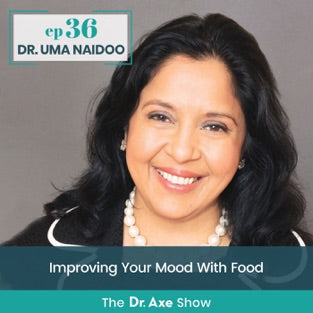Just eat what you are in the mood for.
Listening to experts about what you should eat can be dizzying. Some swear by a plant-based high fiber diet, for instance, while others recommend that a meat-based diet is the way to go. Then there are those who promise longevity with a reduced intake of saturated fatty acids (like that found in the Mediterranean diet ), while others prefer a high-fat diet such as the ketogenic diet .
On the surface, high fat sounds ludicrous. Yet recent scientific studies suggest that the images that you might have of fat piling up as plaques in your arteries is simply not proven. In fact, some studies indicate that total cholesterol does not matter in men who are less than 65 years of age, or if women are less than 50 or greater 79 years old. And in a review of 115,000 patients who had a myocardial infarction, patients with lower LDLs had higher mortalities post-myocardial infarction. On top of that, 19 studies have demonstrated that high LDL cholesterol levels are associated with low rates of heart disease. Double take: Yes! In some cases, less heart disease with high bad cholesterol.
That said, the real experts may be the people who live the longest. Yet, even they differ in their dietary habits. Emma Morano of Italy, for example, died at the age of 117. She believed that her secret to her longevity was eating three eggs every day—two of them being raw along with some raw minced meat. Susannah Mushatt Jones, who passed away at the age of 116 years, believed that a breakfast of four pieces of bacon and eggs every morning was the key to her longevity. Misao Okaw, who lived till the ripe old age of 117 years, believed that delicious foods like sushi contributed to her longevity, while the world’s oldest man at 113 years of age attributed his long life to pickled herring. Nabi Tajima, who is still living at 116 years of age, said that ramen noodles are her secret to old age.
So, what do you eat? Vegetables? Meat? Low fat? High fat? Raw eggs? Sushi? Ramen noodles? Bacon? The answer is: It depends. But in sifting through the 700 articles that I reviewed, two things were clear: Some choices are better than others; and what you eat can affect how you think and feel.
In my book, This Is Your Brain on Food , I explain why some foods are good for your brain while others are not. And I also explain that what you eat depends on what you are feeling. Here are five tips to consider:
- If you’re going on a splurge, try saffron in any recipe you make. Saffron may protect you against depression.
- Given that Thanksgiving will be here before you know it, did you know that the anti-anxiety amino acid tryptophan cannot be absorbed from turkey without the carbohydrates? If you are looking to calm down, don’t skip those (sweet) potatoes.
- If you have a history of PTSD and are choosing fruit for dessert, choose ½-1 cup of blueberries per day.
- To boost your memory, choose olive oil. And use it in a sofrito preparation with garlic, onion, peppers, and tomatoes cooked in olive oil.
- If you feel like you are in a brain fog but are craving a cocktail, choose something like a juniper berry citrus fizz cocktail since juniper berries can clear brain fog with its luteolin.
In all cases, it’s important to match your diet to your own needs. Mood and thinking factor into what we call precision-nutrition : a tailored approach to deciding what to eat based on what matters. Your thought and feeling patterns are two important factors to take into account.




